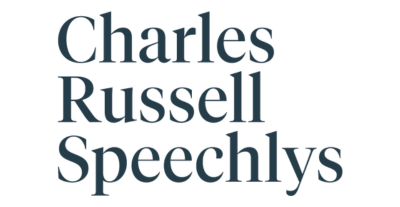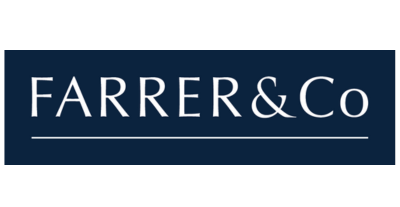Knowledge Hub
Join the Conversation!
Impartial and independent, ThoughtLeaders4 Private Client Knowledge Hub hosts cutting edge industry content and insight.
Email maddi@thoughtleaders4.com to submit content.
Heiress Estate Wins $21 Million FBAR Penalty Case
Date: 18/03/2024 Type: Articles Topic: Private Client | Trusts | Wills and Estates | Inheritance | Next Generation Wealth | Investment and HNWI’s | Tax |Social: A late oil heiress has won what could be a pivotal FBAR decision against the Internal Revenue Service.
The estate of Lavern Gaynor, heiress to the Texaco oil fortune, has won a jury decision concerning $21 million in penalties and interest for her allegedly willful failure to report foreign bank accounts to the U.S. government.
A jury has found, in United States v. Gaynor in the U.S. District Court for the Middle District of Florida, that the government failed to prove that she willfully failed to disclose interests in her Swiss bank accounts.
The U.S. had brought the action against George N. Gaynor, in his capacity as personal representative of the Estate of Lavern N. Gaynor and trustee of the Lavern N. Gaynor Revocable Trust. Lavern Gaynor was the granddaughter of Texaco founder John Gates.
In 2021, the government claimed that Lavern Gaynor, who died that year at age 87, had failed to file Foreign Bank Account Reports (FBARs) between 2009 and 2011 for an account originally opened by her husband at a Swiss bank in 2000 in the name of a Panamanian entity. She held $30.9 million to $33 million in various Swiss accounts in those years, and the government sought $18.4 million in FBAR penalties, plus interest.
Question of willfulness
Starting in 2000, Gery Trading, a Panamanian corporation, held a bank account located in Switzerland, first at Cantrade Privatebank. The account was then held at Julius Baer through 2009 and then moved to Banque Louis and finally to Bank Frey. George H. Gaynor, Lavern Gaynor’s husband of more than 40 years, died in 2003 and left his wife the sole beneficial owner of the account.
Regulations require U.S. citizens file an annual FBAR for any foreign accounts with an aggregate balance exceeding $10,000. The penalty for non-willful violation is up to $10,000; the penalty for willful failure is up to the greater of $100,000 or 50% of the amount of the balance in the account at the time of the violation. Though parties in Gaynor disagreed slightly on the aggregate value of the account for 2009 through 2011, they ultimately did agree that Lavern Gaynor was required to file a FBAR reporting the account for each year of 2009 through 2011 and that she failed to timely file FBARs for those years.
The IRS assessed $5,691,899 for the 2009 tax period (a $100,000 penalty for the Julius Baer balance and a $5,591,899 penalty for the Banque Louis balance); $6,076,373 for the 2010 tax period; and $5,530,867 for the 2011 tax period, including another $100,000 penalty. The IRS calculated the penalty “by taking 50% of the maximum balance between 2009 and 2011” and “then allocated the penalty across the three years,” according to case papers.
The IRS found out about the foreign bank accounts in 2013 because, rather than follow procedures to file delinquent FBARs, Gaynor made a “quiet disclosure” of her offshore assets by filing amended returns, the government’s complaint reportedly said.
She belatedly reported $6.6 million in foreign interest, dividends and capital gains, which resulted in more than $1 million in additional taxes, according to news reports on the jury’s decision. The IRS also said that she moved her assets from one Swiss bank to another to avoid tax reporting obligations. She also didn’t tell her accountant about the Swiss bank accounts and later attempted to “quietly disclose” these foreign bank accounts without alerting the IRS to her noncompliance.
A setback?
Previously, the District Court granted summary judgment to the IRS on the issue of whether Gaynor could be liable for the penalties, concluding that the FBAR penalty for a willful violation was remedial and didn’t abate on Lavern Gaynor’s death.
The only issue for the jury in the case was whether Lavern Gaynor’s failure to file FBARs for each of 2009, 2010 and 2011 was willful. The jury considered three categories of evidence: certain financial records; a biographical “as told to” book, Lal: A Legacy of Gracious Giving; and evidence about previous FBAR penalty proceedings.
In their verdict, the jury considered court determinations, in part, that the U.S. government failed to establish:
- sufficient connection in terms of hearsay between some of the financial records and attestation offered;
- that certain records were admissible through residual hearsay exception;
- that Lal conveyed enough relevance to “Mrs. Gaynor’s state of mind and motive for keeping a secret Swiss account”; and
- that the government could elicit facts concerning George Gaynor Jr.’s own FBAR proceedings without the prior approval of the court.
Observers also noted that the IRS and U.S. Department of Justice have often convinced district courts to accept not only assessing liabilities against taxpayers but also against surviving spouses and estates, trustees, distributes and others – and that both agencies have expressed confidence that their use of repatriation orders and even criminal charges would be increasing.
The recent jury decision in Gaynor may show that the agencies don’t yet always have such leverage in select FBAR cases.
Your tax specialist needs to stay on top of this and many other issues of wealth, foreign income and tax enforcement. If we can help, please let us know.
Please note: This content is intended for informational purposes only and is not a replacement for professional accounting or tax preparatory services. Consult your own accounting, tax, and legal professionals for advice related to your individual situation. Any copy or reproduction of our presentation is expressly prohibited. Any names or situations have been made up for illustrative purposes — any similarities found in real life are purely coincidental.
Alicea Castellanos is the CEO and Founder of Global Taxes LLC. Alicea provides personalized U.S. tax advisory and compliance services to high-net-worth families and their advisors.
Alicea has more than 20 years of experience. Prior to forming Global Taxes, Alicea founded and oversaw operations at a boutique tax firm, worked at a prestigious global law firm and CPA firm.
Alicea specializes in U.S. tax planning and compliance for non-U.S. families with global wealth and asset protection structures which include non-U.S. trusts, estates and foundations that have a U.S. connection.
Alicea also specializes in foreign investment in U.S. real estate property, and other U.S. assets, pre-immigration tax planning, U.S. expatriation matters, U.S. persons in receipt of foreign gifts and inheritances, foreign accounts and assets compliance, offshore voluntary disclosures/tax amnesties, FATCA registration, and foreign companies wanting to do business in the U.S.
Author
Alicea Castellanos (CEO & Founder) - Global Taxes
Our Private Client Corporate Partners




























